Last week Naughty Dog gave us a new glimpse at Uncharted 4 and we got to see Nadine Ross. Nadine looked like a kick ass Black female character who was clearly taking no shit from Nathan Drake. Some people were excited, some were skeptical about the possibility of another aggressive black woman stereotype, but the shit really hit the fan when news broke that Nadine’s character was being voiced by a white woman, Laura Bailey. We’ve had conversations about the benefits of characters of color being voiced by actors of color for the sake of authenticity before. Not in necessarily in voice intonation, but in cultural referents as well. Drew Hobson spoke articulately and from experience about that in the interview that we did with the guys over at Undead Labs about State of Decay so I won’t go into that in great detail right now.
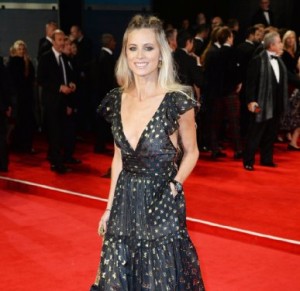 The internet upheaval was strong enough that Uncharted 4‘s creative director, Neil Druckmann, felt the need to address it on a panel at PSX the very next day. And that’s when it got very disturbing. The line of questioning began with an offhanded and dismissive joke by a member of the panel (off screen) about not seeing color, which is an easy thing to say as white man and continued with another joke by Druckmann about not knowing Bailey was white. And the conversation continued to go horribly wrong when Druckmann mentions that they had auditioned women who were Black, Caucasian, American, and South African, but they had chosen Bailey because she had nailed the role. A role that he admitted was not concretized in terms of race or physical appearance at that point.
The internet upheaval was strong enough that Uncharted 4‘s creative director, Neil Druckmann, felt the need to address it on a panel at PSX the very next day. And that’s when it got very disturbing. The line of questioning began with an offhanded and dismissive joke by a member of the panel (off screen) about not seeing color, which is an easy thing to say as white man and continued with another joke by Druckmann about not knowing Bailey was white. And the conversation continued to go horribly wrong when Druckmann mentions that they had auditioned women who were Black, Caucasian, American, and South African, but they had chosen Bailey because she had nailed the role. A role that he admitted was not concretized in terms of race or physical appearance at that point.
So the question that burns in my mind is this. How had they written a script for a character (or literally given voice to her) when they did not know who she was racially or ethnically? Is it possible that Druckmann and his team really believed that race didn’t matter? Did they not recognize that the experiences of white and black South Africans would be vastly different? Here we are talking about a country where apartheid ended just two decades ago. Are we to believe that Nadine’s life experience as a mercenary, a woman, and a person of color were not affected by that fact? Did this creative team really think “hey, 50 years of apartheid ended during this woman’s childhood so clearly she has forgotten all of the effects that it had on her life?” Not to mention the effect that it had on the lives of her parents and the way that she was raised because of it. And this is further complicated by the fact that her father is career military (which is going to complicate the scenario even more for a number of deeply political reasons).
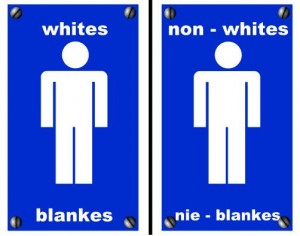 And let’s be real for a moment, if we consider exactly what apartheid in South Africa was and that it racially segregated the country (and in some cases families!), restricted miscegenation, travel in and out of restricted areas, forced black South Africans into poverty, and too many other horrible fucking things to list; we recognize that it was the worst of the Jim Crow South magnified, consecrated by law and enforced over an entire country of people inhabited mostly by the people that it oppressed. Imagine the violence and fear that had to be used to keep such a system in place. Are we to believe that being born into apartheid, living in, or even being born in the same century that this kind a racist system ruled would have no bearing on who you are as a person and why you do make the choices that you do, especially when one of those choices is to become a mercenary? Nope, Naughty Dog, you’re absolutely right. No need to finalize Nadine’s identity before constructing her narrative. It’s all plug and play as long as you get to drive fast and shoot shit.
And let’s be real for a moment, if we consider exactly what apartheid in South Africa was and that it racially segregated the country (and in some cases families!), restricted miscegenation, travel in and out of restricted areas, forced black South Africans into poverty, and too many other horrible fucking things to list; we recognize that it was the worst of the Jim Crow South magnified, consecrated by law and enforced over an entire country of people inhabited mostly by the people that it oppressed. Imagine the violence and fear that had to be used to keep such a system in place. Are we to believe that being born into apartheid, living in, or even being born in the same century that this kind a racist system ruled would have no bearing on who you are as a person and why you do make the choices that you do, especially when one of those choices is to become a mercenary? Nope, Naughty Dog, you’re absolutely right. No need to finalize Nadine’s identity before constructing her narrative. It’s all plug and play as long as you get to drive fast and shoot shit.
Not only would the history of her homeland effect who Nadine Ross is as a character (if they have any intention on giving her any of the depth that they have attempted with Nathan Drake), but it would also have an affect on how she interacts with Nathan Drake (or even white people in general). Is she beating the shit out of him in the trailer that we saw come out of PSX because she wants the crucifix? Maybe. Or is she beating the shit out of him because his is yet another arrogant and entitled white dude coming into her country to take more of what is not his and leave nothing for its actual inhabitants? Completely understandable. But one of those narrative lines makes Nadine a richer and more robust character, something that you can’t get to if you don’t know who she is before she is developed.
 So while there is a valid argument to be made (and perhaps loudly so) for why Nadine Ross would have been better voiced by a Black (and I’ll go as far as to say South African) woman, it is not the only issue. Not only do we need to see more diverse representation in the games industry through the casting practices, but we we need to see more diverse representation of the characters themselves in the narrative design practices. People are not generic beings. They come from a variety of different social, cultural, racial backgrounds and have experiences and histories that affect who they are and how they behave and if we are going to have rich narratives for anyone outside of the scruffy, white, cis-male protagonist we can’t just continue to gloss over their back stories. To continue to do so just leads to the white washing (or even worse stereotyping) of minority characters in games. Characters, like Nadine, need to have a reason for what they do so that they do not exist solely as brown golems that are only brought to life by and for white protagonists.
So while there is a valid argument to be made (and perhaps loudly so) for why Nadine Ross would have been better voiced by a Black (and I’ll go as far as to say South African) woman, it is not the only issue. Not only do we need to see more diverse representation in the games industry through the casting practices, but we we need to see more diverse representation of the characters themselves in the narrative design practices. People are not generic beings. They come from a variety of different social, cultural, racial backgrounds and have experiences and histories that affect who they are and how they behave and if we are going to have rich narratives for anyone outside of the scruffy, white, cis-male protagonist we can’t just continue to gloss over their back stories. To continue to do so just leads to the white washing (or even worse stereotyping) of minority characters in games. Characters, like Nadine, need to have a reason for what they do so that they do not exist solely as brown golems that are only brought to life by and for white protagonists.

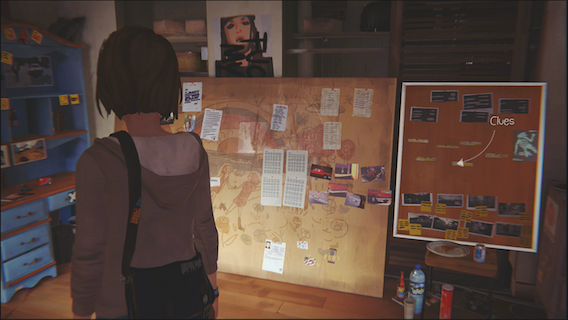
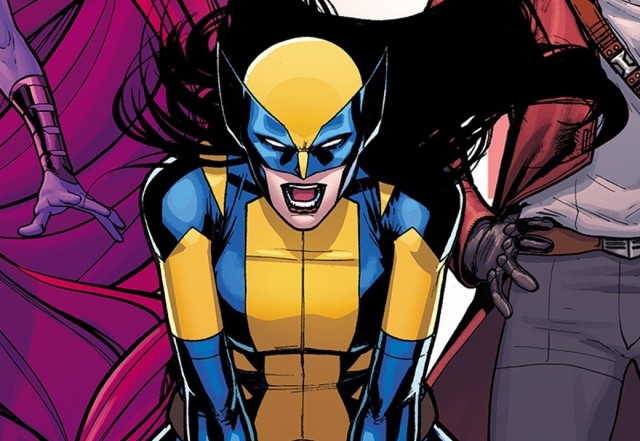
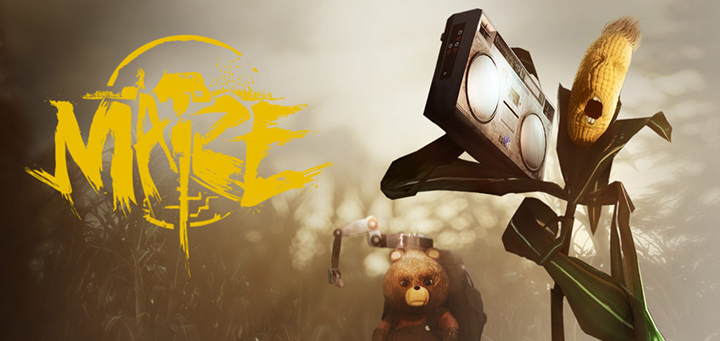
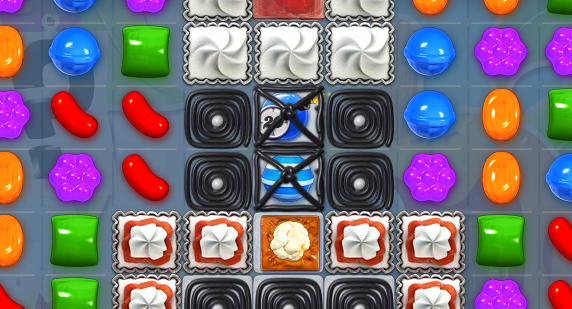
3 thoughts on “Nadine Ross: On History, Race, and Character Depth”
“Is she beating the shit out of him in the trailer that we saw come out of PSX because she wants the crucifix? Maybe. Or is she beating the shit out of him because his is yet another arrogant and entitled white dude coming into her country to take more of what is not his and leave nothing for its actual inhabitants?”
ummm
probably the first one.
Never said it was outside of the realm of possibility, thus the “Maybe”. What I said was that knowing more about her as a character would give us better insight into her motivation and that we couldn’t know which was true without that character development.
N.B. For those who sought to “correct” me, over the years Laura Bailey’s hair has been long, short, black, brown, and blonde and if time is taken to actually look at her face you will see that it is indeed the same woman.